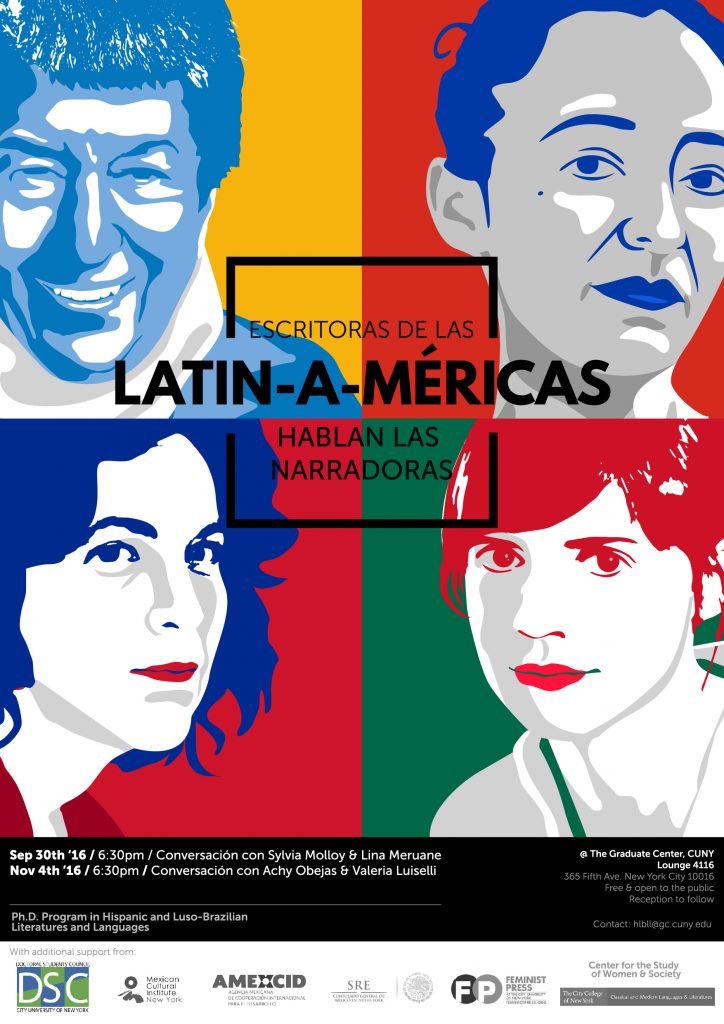In the PhD Program in Hispanic and Luso Brazilian Literatures and Languages at the Graduate Center, our intellectual community is enhanced by the academic events organized by our students. Besides the annual graduate student conference (coming up on its 22nd year!), each year HLBLL students have also organized readings, lectures, screenings, and discussions on a wide variety of topics and with exciting guests.
One such event is the upcoming two-part series, Escritoras de las Latin-a-méricas: Hablan las narradoras, which invites four distinguished women writers–Sylvia Molloy, Lina Meruane, Achy Obejas, and Valeria Luiselli–to enter into conversation with each other and the public about such possible topics as the experience of translation as a cultural exchange in New York, the relation between English and Spanish in both their academic and creative writing careers, the importance of emerging LGBTIQ voices in fiction, the immigrant women’s experience in the U.S., and issues related to women writer’s rights. The series was organized by HLBLL students Elena Chávez Goycochea, Mariana Romo-Carmona, and Nan Zheng.
Escritoras de las Latin-a-méricas: Hablan las narradoras
 Friday, September 30: A conversation with Sylvia Molloy y Lina Meruane
Friday, September 30: A conversation with Sylvia Molloy y Lina Meruane
Friday, November 4: A conversation with Achy Obejas & Valeria Luiselli
Both conversations are free, open to the public, and will take place starting at 6:30pm in room 4116 at the Graduate Center, CUNY. A reception will follow the conversation on each night.
Thanks to our fantastic student organizers, and also to the event’s co-sponsors:
The PhD Program in Hispanic and Luso-Brazilian Literatures and Languages
The students of the PhD Program in Hispanic and Luso-Brazilian Literatures and Languages
The Doctoral Students’ Council
The Classical and Modern Languages department at City College, CUNY
The Feminist Press
The Mexican Cultural Institute of New York
The Center for the Study of Women & Society

